The Hook’s Drugstore Museum is the 2nd building on the left as you enter the Fairgrounds from the Main Gate on 38th Street. Between the Home and Family Arts, and Expo Hall buildings.

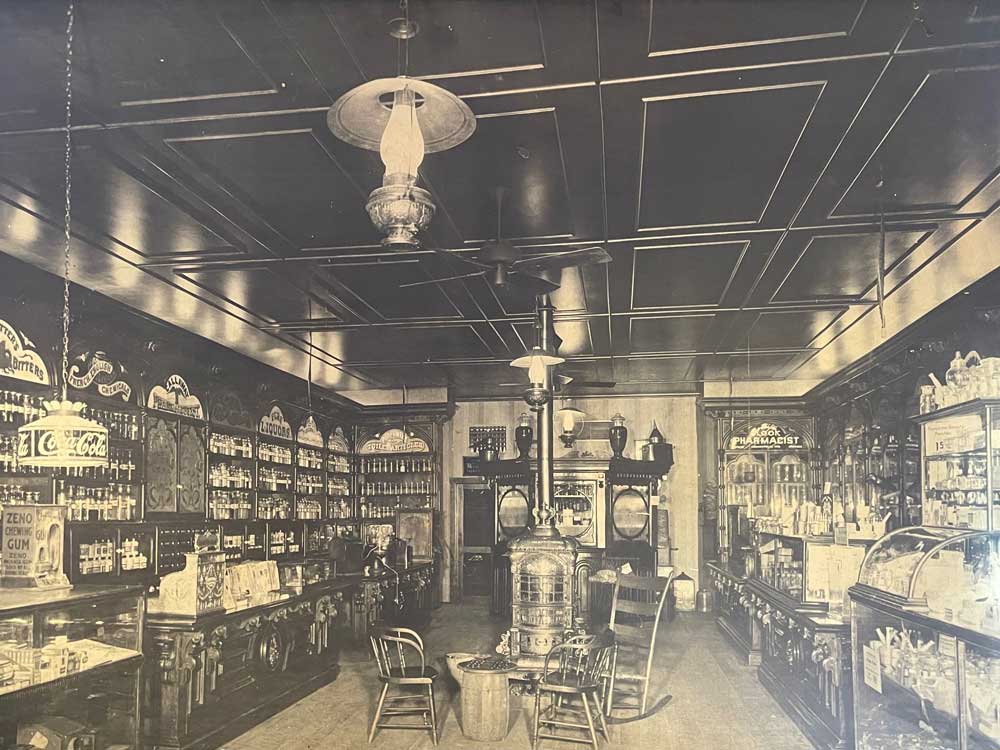

The Hook’s Historical Drugstore Museum opened in 1966 on the Indiana State Fairgrounds, as part of Indiana’s celebration for Sesquicentennial (150th year of Statehood). The Museum was planned by Bud Hook, President of Hook Drug Inc., as a gift to the State of Indiana from Hook’s Drugstore chain. Originally intended as a temporary three-month exhibit, the Museum has endured nearly six decades, and hosted more than three million visitors. Today, Hook’s Drugstore Museum is one of the longest running, and most visited attractions of its kind in America.
The Museum is designed to create an immersive experience for visitors, as though stepping back into an actual late 19th century drugstore. Many connections to Indiana history are found in our artifacts and displays. The beautiful walnut and ash cabinets in the Main Museum are pre-Civil War, and originally installed in Cambridge City, Indiana. The dark oak “Craftsman Style” cabinets in the gift store section date to 1900 and were the original cabinets in Hook’s first store, in Indianapolis. The bulk of the antique medicines, bottles, advertising, and tools on display were donated by Indiana Pharmacists, to honor the heritage of their profession.
The Hook’s Drugstore Museum is owned and operated by a 501c3 non-profit organization, dedicated to preserving and maintaining this icon of Indiana history. We are supported by a combination of donations, proceeds earned during the annual State Fair and tours, and grants.
Hook’s Drugstores started in 1900, in Indianapolis, from a single location. John Hook, joined later by partner Edward Roesch in 1908, and eventually succeeded by John’s Son August (Bud) Hook (named President in 1956), eventually built a large and very successful drugstore chain, headquartered in Indianapolis. Hook’s was well known in Indiana for community involvement and progressive business practices. Although the Hook’s Drugstore chain no longer exists (due to buyout from a rival in 1994), the Museum they created in 1966 continues to serve its original intent. Each year during the State Fair, and selected other openings, we welcome over 60,000 visitors.
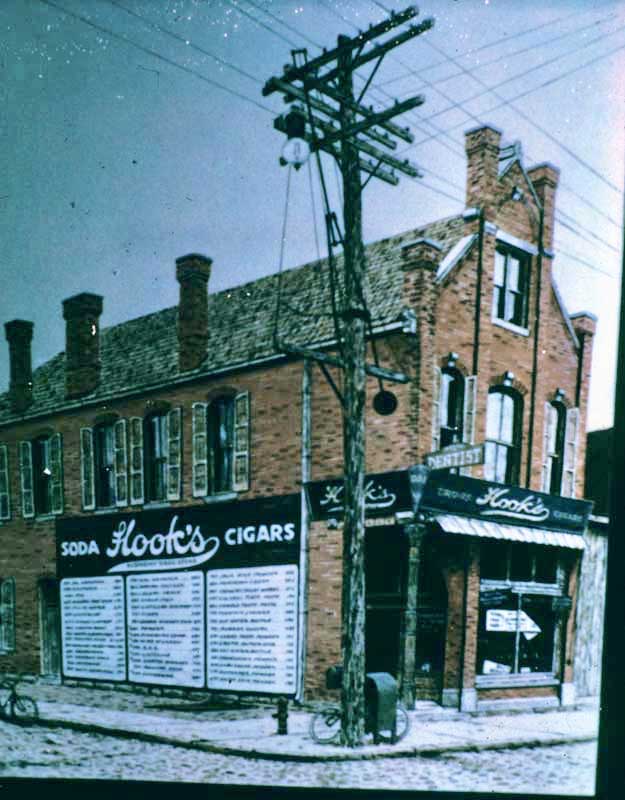
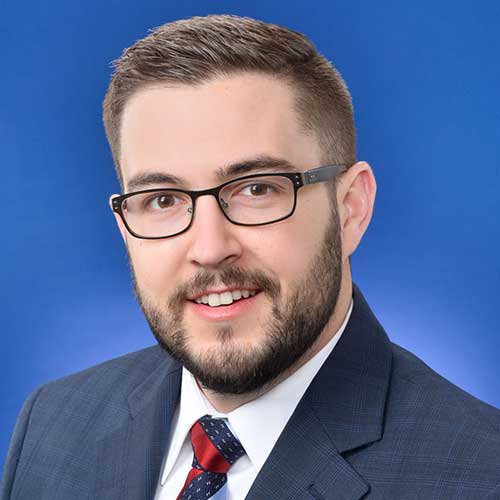
Garrett is a lifelong resident of Indiana and currently employed at Eli Lilly & Co. as a Senior Director of Clinical Development. He received his Bachelor of Arts in Chemistry from Franklin College and has a Master of Business Administration from Butler University, seamlessly merging his scientific expertise with strategic business acumen.
With over a decade of drug development experience including research, pharmaceutical project management, and clinical development, Garrett brings a wealth of expertise in leading strategic initiatives across global cross-functional teams.
Garrett’s leadership extends beyond the corporate walls; in addition to serving on the Board of the Hooks’ Museum he also serves as the President and Board Chair for another local non-profit organization, The Friends of T.C. Steele – demonstrating his commitment to community engagement.
Garrett’s wide array of interests include music, history, the arts, traveling, and active engagement in local politics. He embodies a passion for leveraging his knowledge and skills to drive positive change within his community.
Term ends 12/31/2025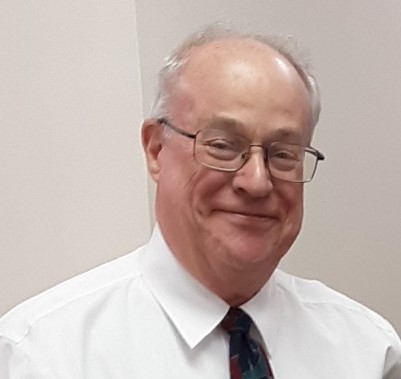
Keith Allhands is a pharmacist living in southeast Indiana. He started out his career working in the first computerized independent pharmacy in the state of Indiana located in New Castle, while working part-time at the local hospital. Moving southeast, he retired after 39 years at Dearborn County Hospital working his way from staff pharmacist to assistant director of pharmacy services. Keith is a Purdue University graduate. He contributes to his community being the clinic director for the Volunteers in Medicine of Dearborn, Ohio, and Switzerland Counties, a free medical clinic in Aurora, IN, a member of the Switzerland County Health Board, and a member of the Dillsboro Community C.A.R.E. (Community Action Response Engage) team. He volunteers as a pharmacist interpreter at the Hook’s Drug Store Museum during the Indiana State Fair. Keith is a supply pastor for various churches for pastors needing vacation/sick time or churches between full-time pastors. He volunteers on short-term medical brigades. He is married to his bride, Linda, has three beautiful daughters, and four engaging grandchildren.
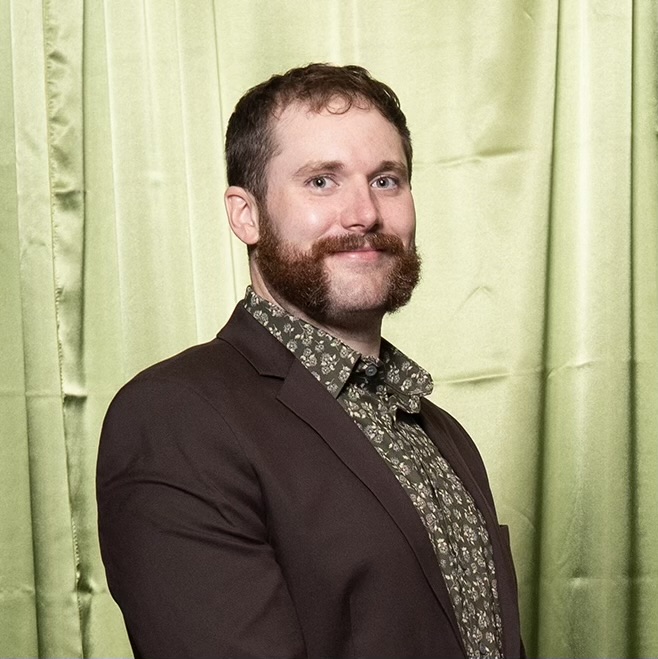
Alex Arwood is a lifelong resident of Evansville, Indiana. He is the great-grandson of August (Bud) Hook and the great-great grandson of John Hook. Alex has a passion for education and looks forward to supporting and helping build upon the Museum his family started.
After graduating from the University of Southern Indiana with a Bachelor of Science in Biology, he began working in Research and Product Development at Mead Johnson Nutrition. As a Product Developer, he has directly contributed to the launch of numerous specialty infant formulas.
Alex's hobbies include hiking, traveling, woodworking, photography, spending time with family, and playing board games.
Term ends 12/31/2025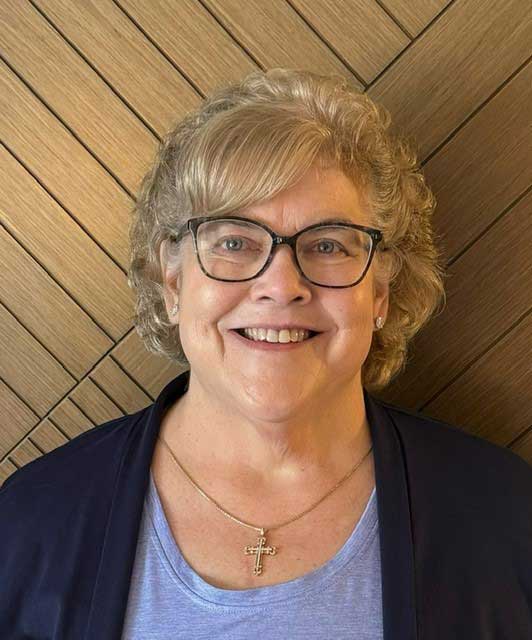
Following in the footsteps of her great grandfather, John A. Hook, and grandfather, August F. (Bud) Hook, Cathy became a registered pharmacist in 1987, graduating from Purdue University.
Her first position as a pharmacist was assistant manager for Hook's Drugs. Over her 35 year career, in addition to working retail, she worked hospital pharmacy, co-owned Hook's Apothecary, managed a home infusion company and managed a long term care/home infusion company before returning to Hook's Apothecary, which, is Indiana's first compounding only pharmacy.
Cathy brings Hook's family and business knowledge, as well as, pharmacy knowledge in various aspects to her position as a Director.
In her spare time she enjoys spending time with family, friends, her cats and dogs, as well as traveling.
Term ends 12/31/2026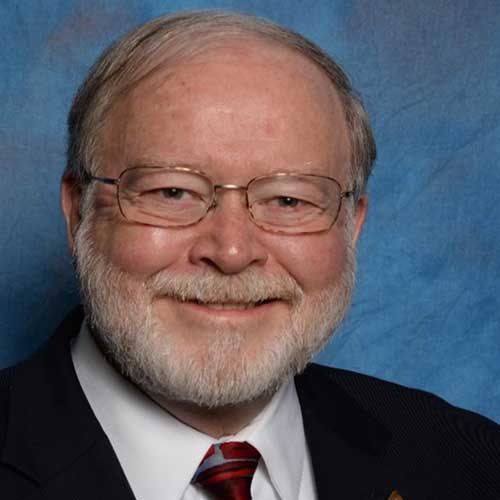
Bruce Clayton was born and raised in Grand Island, Nebraska. He joined the third generation of Claytons living in Grand Island, five of whom were pharmacists, providing pharmacy services at Clayton Pharmacy, started in 1910 by Bruce’s grandfather, William. Great uncle Walter, uncle Bill and Father, John were also pharmacists at this community pharmacy, serving the community for over 68 years.
Bruce grew up working with his cousins and brothers in the pharmacy. After graduating from the University of Nebraska (1970) with a Bachelor of Science in Pharmacy, a Doctor of Pharmacy (1973) from the University of Michigan and completing a Residency in Hospital Pharmacy at University Hospital (1974), Bruce took a different career path to academic pharmacy practice that had been evolving over the previous decade. Over the next 42 years, Bruce served as a faculty-practitioner at the colleges of Pharmacy at Creighton University (1974-77), University of Nebraska Medical Center (1978-85), University of Arkansas Medical Center (1985-89) and Butler University (Indianapolis)(1989-2016). In 2016, he retired as associate dean of the college, and was elected Professor Emeritus of Pharmacy Practice. As part of his teaching responsibilities, he presented the freshman lectures on the history of pharmacy. He was the co-keynote speaker (with Dr. Jeanne VanTyle) on the origins of the Indianapolis College of Pharmacy and its evolution to the Butler University College of Pharmacy at the College’s centennial celebration in 2004. In 2007, the Indiana Pharmacists Association celebrated its 125th anniversary. Past president Clayton presented a program on highlights of the first 125 years of the association and also served as an editor to a publication “125 Years of Indiana Pharmacy, A History of Indiana’s Pharmacy Association,” authored by David A. Zahl and sponsored by the Indiana Pharmacists Association (IBJ Custom Publishing). Bruce and Francine have been married 50 years (1971) and counting. They have been blessed with two daughters and four grandchildren.
Term ends 12/31/2024
Joseph Hand (Joe) is a graduate of George Rogers Clark College & Indiana Business College where he earned degrees in Computer Science, Finance, and Accounting. Joe’s primary career spanned thirty years in the Computer Software Industry where he served in various senior leadership roles Including: Vice President Information Services, Irwin/Freedom Mortgage, Director Software Systems, City of Indianapolis/Marion County, and Senior Practice Leader Global Managed Services for Interactive Intelligence/Genesys. In addition, Joe is a Realtor and has built a successful Rental Real Estate Investment business, with his son Max Hand Joe joined the Hooks Drugstore Museum Board of Directors in 2021 and currently serves as President. He has also served on the IUPUI Computer Technology Industry Advisory Board, and the Interactive Intelligence Foundation.
Joe is a lifelong resident of the Indianapolis/Central Indiana area and currently lives in Fishers IN. He has a deep love and appreciation for the History of Indiana. In his free time, Joe enjoys hiking, water skiing, mentoring young adults, and attending iTown church with his wife and high school sweetheart Tanya.
Term expires: 12/31/2024
Robert Hunt, RN, retired from Eli Lilly and Company. He earned a Diploma of Registered Nursing from the Wishard School of Registered Nursing, and later completed a bachelor’s degree from IU. His experience at Lilly included Phase 1 and Phase 2 Clinical Research, Drug Epidemiology, and Regulatory Affairs. He served in a variety of roles over 29 years, including Associate, Management, and Project Management. Robert’s final position at Lilly was Clinical Project Management for multiple early-phase cardiovascular and nephrology compounds. Prior to Lilly, Robert worked 5 years as a Staff Nurse in Emergency Medicine.
Robert became involved with the Hook’s Museum in 2004. The organization that owned and managed the Museum at that time was shifting its focus to new initiatives that did not include the Museum. Together with Dan Russell, he recruited volunteers for a new group to take charge of the Museum assets and continue operations. Robert wrote the 501c3 application for the new organization, which quickly received IRS approval. Following 501c3 status achieved, he managed the transfer of all Museum related assets from the previous organization, to the current one. He served as Board President for the new organization for the first three years. Robert has continued with the Board, concentrating on general operations, and improving fundraising through Soda Fountain and Gift Store Sales during the annual State Fair. Robert Also Serves on the Board of the Indiana National Road Association, and The Antique Advertising Association of America. In his spare time, Robert is an award-winning professional oil painter. He also enjoys traveling, and spending time with grandchildren.
Term ends 12/31/24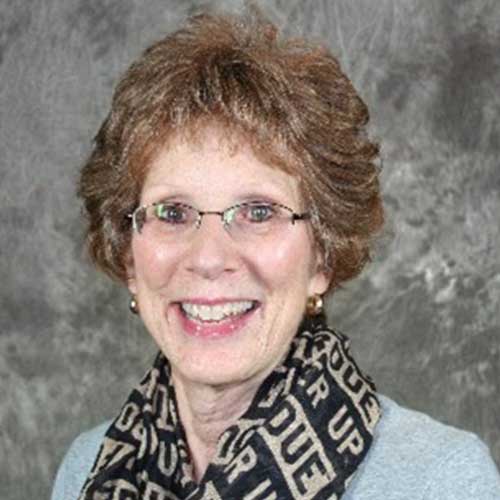
Jane E. Krause, MS, RPh is a Clinical Associate Professor of Pharmacy Practice, Purdue University College of Pharmacy, where she also earned her degrees. In 2014, Jane was invited to join the Hook’s Drug Store Museum Board and served in the position of Vice President from 2016-2022. Jane co-authored the activity book, Proud to be an Indiana Pharmacist, available to fair-goers visiting the Museum. In 2018, the activity book received a “Certificate of Commendation” from the American Institute of the History of Pharmacy (AIHP). For each State Fair, Jane organizes blood pressure checks held at the Museum and hosted by pharmacy students and faculty members from Butler University, Manchester University, and Purdue University Colleges of Pharmacy.
Jane sincerely enjoys her faculty position at Purdue University College of Pharmacy where she has received the College’s Innovation in Teaching and Learning Award, the College’s Outstanding Teacher of the Year Award, and she is a Purdue Teaching Academy Fellow. To recognize contributions to her local community, Jane received the Cardinal Health Generation Rx Champions Award and the Bowl of Hygeia Award. In her free time, Jane enjoys visiting antique shops, scrapbooking and other crafts, spending time with family and friends, and all things Purdue.
Term ends 12/31/2024
Robert Smith was born and raised in Cincinnati, graduated from the University of Cincinnati with a BS in Pharmacy and an MBA in Marketing. His Pharmacy roots began as a pharmacy intern in a busy independent drug store in Cincinnati, learning the business, the history, and the ways of the old-timey apothecary. Although he moved on to chain drug store and hospital pharmacy experiences, Robert never lost his appreciation and respect for the corner independent druggist. The old-time art of the compounding of medicines and his understanding of pharmacognosy (science of natural drugs from plant and animal sources) is still a passion to this day.
After a 5-year career practicing pharmacy, Robert retired from a 30-year career in the pharmaceutical industry focusing on sales and account management, market research and contracting. He spent the last 20 years of his career in the Indiana market and led many different sales teams, focusing on countless different therapeutic areas.
A proud pharmacist to this day, since retiring, Robert has consulted in the pharmaceutical area, volunteered with SHIP to help clients with Medicare and is volunteering with AARP-TaxAide to assist clients with personal taxes. He is excited to help take Hook’s Drug Store Museum to the next level.
Robert is married to his wife Jackie and has a divided family…his daughter graduated from IU and his son is attending Purdue University.
Term Ends 12/31/2026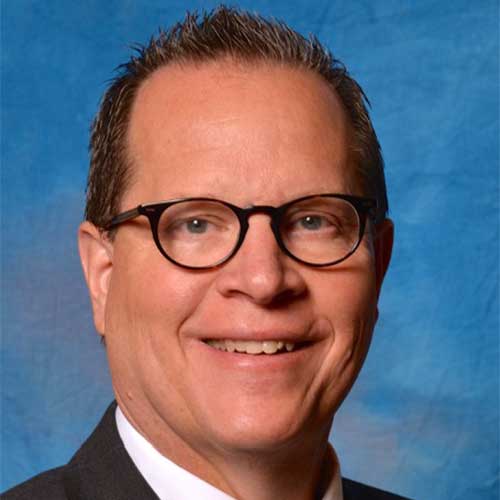
Ron Snow is a graduate of Drake University College of Pharmacy. He worked for 37 years in retail pharmacy, with the majority of those years in management and talent acquisition. He has a deep love and appreciation for the history of pharmacy, particularly in Indiana. He is a past president of both the Indiana Pharmacists Association and the Indiana Pharmacists Education Foundation.
Ron received an Alumni Achievement Award and a National Alumni Loyalty Award from Drake University, as well as a Friend of Pharmacy Award from Purdue University College of Pharmacy. He also sat on the Dean’s Advisory Councils of nine colleges of pharmacy.
Ron is an elder of Second Presbyterian Church in Indianapolis, and has served as Moderator of Deacons and chairman of three associate pastor search committees. Currently, he teaches fourth & fifth grade Sunday school, ushers, and is on the leadership team of Men@Second. He also serves on the Commission on Ministry for the Whitewater Valley Presbytery.
Ron married his wife Linda in 1981. Their son, Jeff, and daughter-in-law, Alyssa, live in Cave Springs, Arkansas, with their twin boys, Henry and Luke.
Term Ends 12/31/2024
Buck Stanford, PharmD, MBA joined Indiana University Health in November 2019 and serves as the System Vice President and Chief Pharmacy Officer. In addition to leading Pharmacy Services, Buck sits on many internal and external strategic committees and partnerships designed to help to shape healthcare practice in Indiana. In addition to federal and state legislative advocacy, he is also an active member of American College of Healthcare Executives, American Pharmacists Association, American Society of Health System Pharmacists, and the American Hospital Association. Buck joined the Hooks Drugstore Museum Board of Directors in 2020 and currently serves as Vice President.
Buck completed his Bachelor of Science, Pharmacy at Butler University in Indianapolis, IN, his Master of Business Administration in Healthcare Management from University of St. Thomas in Minneapolis, MN, and his Doctor of Pharmacy at Shenandoah University in Winchester, VA.
In his free time, Buck enjoys riding and restoring motorcycles, collecting antique pharmacy and various items from the early 1900s, and doing volunteer work. He also devotes time to friends and family and especially enjoys being an Assistant Scoutmaster for his son’s Boy Scout troop.
Term Ends 12/31/2024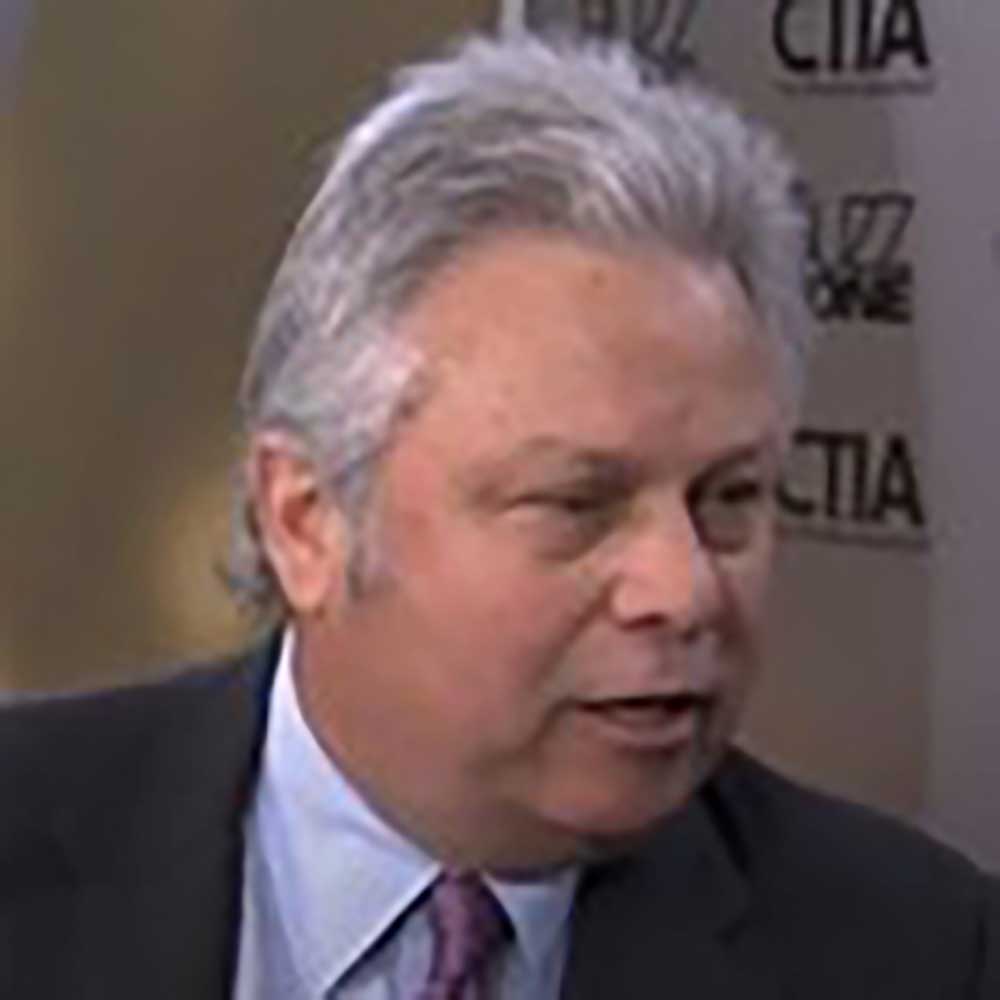
David Steele was raised in the Fountain Square neighborhood of Indianapolis, a few blocks from the location where John Hook established his first drug store in 1900. With a deep interest in Indiana history, David has been successful in gaining approval for six Indiana Historical Bureau markers including Hook’s Drug Stores and has appeared on the weekly radio show “Hoosier History Live”.
David is also a frequent speaker to local and regional groups on topics of Indiana History, and authored the content and led the design and implementation of the T.C. Steele Historic Trail progressive web application, introduced on the world wide web in June of 2023.
David has deep experience with for-profit and for-profit boards, and has been a successful international business executive, award winning college professor, and decorated veteran of the US Army. David is a graduate of Indiana University and Butler University where he received an MBA.
Married in 1985 to the former Lynne Tarlton Jeck, the Steeles have two children, Ben and Emma, both of Indianapolis, and two grandchildren Jackson and Nicholas.
Term ends: 12/31/2024To deepen the knowledge and appreciation of late 19th and early 20th century medicines and pharmacy practices by educating and engaging visitors with authentic drug store artifacts while stepping back in time with the unique experiences of an old-time ice cream parlor and gift shop.
To become a world class pharmacy museum that inspires and educates the public on the impact and evolution of pharmacy.
Integrity
We value honesty, openness, and appropriate disclosure in all our activities.
Relationships
We value our partners, visitors, and community stakeholders and always seek to understand views and impacts to those we engage.
Diversity
We are committed to creating and maintaining an environment that values diversity, equity, and inclusion and will recruit leaders, staff, and volunteers who share these core values.
Education
We value educational enrichment, aligned with the mission and vision, that provides a wide range of compelling learning experiences for visitors of all ages and interests.
Preservation
We value historic preservation and authenticity in the development and execution of our exhibits, tours, and public events.
Stewardship
We value the important role we have in protection, maintenance, and accountability of the historic artifacts and collections of the museum.

BY-LAWS, GOVERANCE GUIDELINES AND CODE OF CONDUCT
September 10, 2024
GREENFIELD MUSEUM INITIATIVE. INC.
d/b/a HOOK DRUG STORE MUSEUM
Section 1. Name. The name of the corporation is Greenfield Museum Initiative, Inc. (the “Corporation”).
Section 2. Address. The post office address of the Corporation’s registered office is 1121 N. Cambridge, Greenfield, Indiana, 46140. The registered agent in charge of the registered office is Robert Hunt.
Section 3. Fiscal Year. The fiscal year of the Corporation shall begin on the first day of January and end on the last day of December next succeeding.
The Corporation shall have no members.
Board of Directors
Section I. Governance/number of Board Members, The affairs of the Corporation shall be managed, controlled, and conducted by, and under the supervision of the Board of Directors, subject to the provisions of the Articles of Incorporation and these By-Laws. The Board of Directors shall have “not less than seven (7) nor more than eleven (11) Directors. (Certificate of Incorporation [CI] Art VII, sec 1). “In the event that the number of Directors is increased by the By-Laws of the Corporation, the election of the additional Director or Directors shall be by a vote of the Directors of the Corporation” (CI Art VII, sec 1).
Section 2. Election of Directors/Terms of Office. The election of members of the Board of Directors shall be governed by the Corporation’s Articles: The Board of Directors shall be elected by ballot at a regular annual meeting of the Board of Directors and each Director shall hold office for a term to be determined according to the By-Laws of the Corporation.
Terms of office for Board members are 3 years in length with annual reappointments thereafter should the Board member wish to continue service as a Director.
Section 3. Fulfillment of term of Office; Early resignation from term of office; appointment of a new board member into unexpired term.
Section 4. Increases in Board Size. An increase in board size shall generally be accomplished pursuant to the Articles of Incorporation as amended or restated. The filling of the vacancies created by such increases shall be done in accordance with the provisions of the Corporation’s Articles as amended or restated. (“In the event that the number of Directors is increased by the By-Laws of the Corporation, the election of the additional Director or Directors shall be by a vote of the Directors of the Corporation”)(CI Art VII, sec 1).
Section 5. Quorum and Voting. A majority of the directors in office immediately before a meeting begins shall constitute a quorum for the transaction of any business properly to come before the Board of Directors. Except as otherwise provided in the Articles of Incorporation or Bylaws, the act of a majority of the Directors present at a meeting at which a quorum is present shall be the act of the Board of Directors. Directors are considered to be present as part of the quorum if they are: 1) physically present at the meeting, or 2) are participating live through two-way audio or video communications (e.g. telephone, Zoom).
Section 6. Regular Meetings. The Board of Directors may hold regular meetings, as fixed by these Bylaws or by resolution of the Board of Directors, for the purpose of transacting such business as properly may come before the Corporation’s Board of Directors. Except as provided in these Bylaws, such regular meetings of the Board of Directors may be held without notice of the date, time, place, or purpose of the meeting. The first regular meeting in the Corporation’s fiscal year shall be the annual meeting of the Board of Directors.
Section 7. Special Meetings. Notwithstanding the preceding Section 5 of this Article Ill, the Board of Directors may hold special meetings for any lawful purpose upon proper notice, as described in Section 7 of this Article Ill, and upon call by the presiding officer of the Board of Directors, the President of the Corporation or by twenty percent (20%) of the directors then in office. A special meeting shall be held at such date, time, and place within or without the State of Indiana as is specified in the call of the meeting. The purpose of any such meeting need not be specified.
Section 8. Notice of Special Meetings. Oral or written notice of the place, date, and time of each special meeting of the Board of Directors shall be communicated, delivered or mailed by the Secretary of the Corporation, or by the person or persons calling the meeting, to each member of the Board of Directors so that such notice is effective at least two (2) days before the date of the meeting. Except as provided in these Bylaws, the notice need not describe the purpose of the special meeting. Oral notice shall be effective when communicated. Written notice shall be effective at the earliest of the following:
Section 9. Waiver of Notice. Notice may be waived in a writing, signed by the director entitled to the notice, and filed with the minutes or the corporate records. Attendance at or participation in any meeting of the Corporation’s Board of Directors shall constitute a waiver notice of such meeting unless the director shall, at the beginning of the meeting or promptly upon the director’s arrival, object to holding the meeting and does not vote for or assent to action taken at the meeting.
Section 10. Action by Written Consent. Any action required or permitted to be taken at any meeting of the Board of Directors, or any committee thereof, may be taken without a meeting if a written consent describing such action is signed by each director or all committee members, as the case may be, and such written consent is included in the minutes or filed with the corporate records reflecting the action taken. Action taken by written consent shall be effective when the last director or committee member signs the consent, unless the consent specifies a prior or subsequent effective date. A consent signed as described in this Section 10 shall have the effect of a meeting vote and may be described as such in any meeting document.
Section 11. Emeritus (Emerita) Board Members. There shall be a category of board members known as a board member emeritus (emerita) who are nominated and elected by the Board of Directors.
Officers
Section l. In General. The officers of this Corporation shall be a President, a Vice President, a Secretary, a Treasurer, and such other officers as the Board of Directors may elect. An officer may simultaneously hold more than one (1) office. Each officer shall be elected by the Board of Directors at the annual meeting and shall serve for one (1) year and until the officer’s successor is elected and qualified. All officers except assistant officers, shall be members of the Board of Directors.
Any officer may be removed by the Board of Directors at any time, with or without cause. Any vacancy occurring in any office shall be filled by action of the Board of Directors, and the person elected to fill such vacancy shall serve until the expiration of the term vacated.
Section 2. President. The President shall preside at all meetings of the Board of Directors of the Corporation and shall be responsible for implementation of policies established by the Board of Directors. The President shall perform the duties incident to the office of chief executive officer of the Corporation and such other duties as the Board of Directors may prescribe.
Section 3, Vice President. The Vice-President shall act in place of the President and shall be empowered to perform all acts which the President is authorized to perform in the event of the president’s absence or inability to serve. The Vice-President shall perform the duties usual to such position and such other duties as the Board of Directors or President may prescribe.
Section 4. Secretary. The Secretary shall be the custodian of all papers, books and records of the Corporation, other than books of account and financial records. The Secretary shall prepare, enter in the minute book, and distribute the minutes of all meetings of the Board of Directors. The Secretary shall authenticate records of the Corporation as necessary. The Secretary shall perform the duties usual to such position and such other duties as the Board of Directors or President may prescribe.
Section 5. Treasurer. The Treasurer shall prepare and maintain correct and complete records of accounts showing accurately the financial condition of the corporation. All notes, securities and other assets coming into the possession of the Corporation shall be received, accounted for, and placed in safekeeping as the Treasurer may from time to time prescribe. The Treasurer shall furnish, whenever requested by the Board of Directors or the President, a statement of the financial condition of the Corporation and shall perform the duties usual to such position and such other duties as the Board of Directors or President may prescribe.
Section 6. Executive Director. The Board of Directors may appoint an Executive Director who shall perform the duties of the chief administrative officer of the Corporation and shall be responsible for the day-to-day management of the Corporation’s affairs. The Executive Director shall also perform such other duties as the Board of Directors or President may prescribe.
Section 7. Other Officers. Each other officer of the Corporation shall perform such duties as the Board of Directors or President may prescribe.
Committees
Section I. Executive Committee. The Executive Committee shall consist of the immediate past President, the President, the Vice President, the Secretary, and the Treasurer, and which, to the extent provided in and consistent with Indiana law, shall have and exercise all of the authority of the Board of Directors in the management of the Corporation’s affairs during intervals between meetings of the Board of Directors. The Executive Committee shall be subject to the authority and supervision of the Board of Directors.
Section 2. Governance Committee. The purpose of the Governance Committee is to assist the Board by:
a. ensuring that the Board fulfills its fiduciary responsibilities through adequate governance policy development and active governance management as trustees of the organization; and,
b. ensuring that the organization’s governance principles and practices are current; keeping the Board informed of current best practices in corporate governance; reviewing corporate governance trends for their applicability and identifying any Board training needs.
c. The Governance Committee shall create and operate under the Hook’s Drug Store Museum Governance Guidelines that provide for oversight of the management practices, behaviors, authority, accountability and control of the organization. The Governance Guidelines shall be published and designated as Appendix A to these By-Laws.
d. The Governance Committee shall be comprised of the Board President and two additional Board Members approved by the Board.
e. The Governance Committee shall meet as frequently as necessary to transact its assigned responsibilities.
f. The Governance Committee shall be subject to the authority and supervision of the Board of Directors.
Section 3. Nominating Committee. The Board of Directors may establish a Nominating Committee, which shall work in concert with the Governance Committee to evaluate the leadership strengths and forecast the leadership needs for the Corporation. The Nominating Committee, in collaboration with the Governance Committee, shall establish procedures for the identification and evaluation of nominees for director and officer positions and shall present a slate of nominees to the Board in accordance with such procedures at the times required by such procedures.
Section 4. Other Committees. The Board of Directors may establish other committees, in addition to the Executive, Governance and the Nominating Committees, to accomplish the goals and perform the programs of the Corporation. Such committees shall have responsibilities and powers as the Board of Directors shall specify. Members of such other committees may, but need not, be members of the Board of Directors. A committee member appointed by the Board of Directors may be removed by the Board of Directors, with or without cause.
Section 5. General. A majority of the members of any committee shall constitute a quorum and all actions of a committee shall require a majority vote of the committee members present at a meeting at which a quorum is present.
Indemnification
Section 1. Indemnification by the Corporation. To the extent not inconsistent with applicable law, every person (and the heirs and personal representatives of such person) who is or was a director, officer, or employee of the corporation shall be indemnified by the Corporation against all liability and reasonable expense that may be incurred by him or her in connection with or resulting from any claim, action, suit, or proceeding (a) if such person is wholly successful with respect thereof or, (b) if not wholly successful, then if such person is determined as provided in Section 3 of this Article VI to have acted in good faith, in what he or she reasonably believed to be the best interests of the Corporation (or, in any case not involving the person’s official capacity with the Corporation, in what he or she reasonably believed to be not opposed to the best interests of the Corporation) and, in addition, with respect to any criminal action or proceeding, is determined to have had reasonable cause to believe that the conduct was lawful (or no reasonable cause to believe that the conduct was lawful). The termination of any claim, action, suit, or proceeding, by judgment, settlement (whether with or without court approval), or conviction or upon a plea of guilty or of LQIQ contendere, or its equivalent, shall not create a presumption that a person did not meet the standards of conduct set forth in this Article VI.
Section 2. Definitions.
a. As used in this Article VI, the terms “claim, action, suit, or proceeding” shall include any threatened, pending, or completed claim, action, suit, or proceeding and all appeals thereof (whether brought by or in the right of this Corporation, any other corporation or otherwise), civil, criminal, administrative, or investigative, whether formal or informal, in which a person (or his or her heirs or personal representatives) may become involved, as a party or otherwise:
i By reason of his or her being or having been a director or officer of the Corporation or of any corporation where he or she served as such at the request of the Corporation, or
ii By reason of his or her acting or having acted in any capacity in a corporation, partnership, joint venture, association, trust, or other organization or entity where he or she served as such at the request of the Corporation, or
iii By reason of any action taken or not taken by him or her in any such capacity, whether or not he or she continues in such capacity at the time such liability or expense shall have been incurred.
c. As used in this Article VI, the terms “liability” and “expense” shall include, but shall not be limited to, counsel fees and disbursements and amounts of judgments, fines, or penalties against, and amounts paid in settlement by or on behalf of, a person.
As used in this Article VI, the terms “wholly successful” shall mean (i) termination of any action, suit, or proceeding against the person in question without any finding of liability or guilt against him or her, (ii) approval by a court, with knowledge of the indemnity herein provided, of a settlement of any action, suit, or proceeding, or (iii) the expiration of a reasonable period of time after the making of any claim or threat of any action, suit, or proceeding without the institution of the same, without any payment or promise made to induce a settlement.
Section 3. Entitlement to Indemnification. Every person claiming indemnification hereunder (other than one who has been wholly successful with respect to any claim, action, suit, or proceeding) shall be entitled to indemnification (a) if special independent legal counsel, which may be regular counsel of the Corporation or other disinterested person or persons, in either case selected by the Board of Directors, whether or not a disinterested quorum exists (such counsel or person or persons being hereinafter called the referee), shall deliver to the Corporation a written finding that such person has met the standards of conduct set forth in the preceding Section 1 of this Article VI and (b) if the Board of Directors, acting upon such written finding, so determines.
The person claiming indemnification shall, if requested, appear before the referee and answer questions which the referee deems relevant and shall be given ample opportunity to present to the referee evidence upon which he or she relies for indemnification. The Corporation shall, at the request of the referee, make available facts, opinions, or other evidence in any way relevant to the referee’s findings which are within the possession or control of the Corporation.
Section 4. Relationship to Other Rights. The right of indemnification provided in this Article VI shall be in addition to any rights to which any person may otherwise be entitled.
Section 5. Extent of Indemnification. Irrespective of the provisions of this Article VI, the Board of Directors may, at any time and from time to time, approve indemnification of directors, officers, or other persons to the fullest extent permitted by applicable law, or, if not permitted, then to any extent not prohibited by such law, whether on account of past or future transactions.
Section 6. Advancement of Expenses. Expenses incurred with respect to any claim, action, suit, or proceeding may be advanced by the Corporation (by action of the Board of Directors, whether or not a disinterested quorum exists) prior to the final disposition thereof upon receipt of an undertaking by or on behalf of the recipient to repay such amount unless he or she is entitled to indemnification.
Section 7. Purchase of Insurance. The board of Directors is authorized and empowered to purchase insurance covering the Corporation’s liabilities and obligations under this Article VI and insurance protecting the Corporation’s directors, officers, employees, or other persons.
Gifts to the Corporation
Any donor of a gift to the Corporation may give directions with respect to such gift at the time the gift is made subject to the limitations in the Corporation’s Articles of Incorporation and this Article VII of these Bylaws. These directions may specify (a) the field of charitable purposes to be supported; (b) the particular charitable organization or organizations to be supported and in which amount or amounts; (c) the donor’s right to make recommendations to the Corporation from time to time as to particular charitable organizations or purposes to be considered for support; (d) the manner of distribution including amounts, times, and conditions of payments and whether from principal and/or income; (e) a name as a memorial or otherwise for a gift, or addition to a fund previously held, or that the donor of a gift shall remain anonymous. If the donor does not expressly direct in the instrument making the gift the use of the income or principal of any gift, grant, or device, the corporation shall have absolute discretion as to the use of the income from the gift, provided that such use conforms to the exempt purposes of the Corporation as outlined in its Articles of Incorporation, but shall be unable to expend the principal of the gift. Notwithstanding any provision in these Bylaws or in any instrument of transfer creating or adding to a fund of this Corporation, and in accordance with the Articles of Incorporation of the Corporation, the Board of Directors shall have the power to modify any restriction or condition on the distribution of funds for any specified charitable purposes or to specify organizations if in the sole judgment of the Board of Directors (without the necessity of the approval of any participating trustee, custodian, or agent), such restriction or condition becomes, in effect, unnecessary, incapable of fulfillment, or inconsistent with the charitable needs of the community served. The Board of Directors shall exercise this power at a meeting by the affirmative vote of two-thirds (2/3) of the members of the Board of Directors.
Contracts. Loans, Checks, Deposits and Gifts
Section l. Contracts. The Board of Directors may authorize one (1) or more officers or agents of the Corporation to enter into any contract or execute any instrument on its behalf. Such authorization may be general or confined to specific instances. Unless authorized by the Board of Directors, no officer, agent, or employee shall have any power to bind the Corporation or to render it liable for any purpose or amount.
Section 2. Checks. All checks, drafts, or other orders for payment of money by the Corporation shall be signed by such person or persons as the Board of Directors may from time to time designate by resolution.
Section 3. Loans. Unless authorized by the Board of Directors, no loan shall be made by or contracted for on behalf of the Corporation and no evidence of indebtedness shall be issued in its name.
Section 4. Deposits. All funds of the Corporation shall be deposited to its credit in such bank, banks, trust companies, or other depositories as the Board of Directors may specify.
Section 5. Gifts. The Board of Directors may accept on behalf of the Corporation any gift, bequest, devise, or other contribution for the purposes of the Corporation on such terms and conditions as the Board of Directors shall determine.
Amendments
The power to make, alter, amend, or repeal the By-Laws is vested in the Board of Directors of the Corporation.
Section 1. Proposals for Amendments. Any sitting board member may submit proposals for amendment of the By-Laws. Ideally, they should be submitted in writing at least 5 days prior to the next published Board meeting but may be submitted as late as the start of the meeting. If submitted less than 5 days prior to the meeting, the amendment(s) may be read into the minutes and action may be taken by the Board if a quorum of the Board is present and the majority of the quorum agree to read and take action on the proposal(s). Action cannot be taken in the absence of a quorum or if the majority of a quorum does not affirm reading or action.
Section 2. Actions that may be taken. Amendments may be rejected by negative vote, amended before voting and then voted upon, or voted upon as originally submitted. A simple majority of a quorum present shall be recognized as an affirmative action for adoption of the proposed amendment. Amendments shall be implemented at the earliest convenient time as determined by the President of the Board.
Section 3. List of amendments: A list of all amendments with dates of passage and implementation of amendments shall be appended to and be a part of the By-Laws.
These By-Laws are passed this 29th day of August, 2004 by the Board of Directors.
These By-Laws have been amended per Article IX, Section, 1, 2 and 3. See addenda after signatory lines. The By-Laws were most recently amended on May 28th, 2024.
Section 1. Purpose: The Hook’s Drug Store Museum Governance Guidelines provide policy to the Governance Committee and board for oversight of the management practices, behaviors, authority, accountability, and control of the organization.
Section 2. Membership: The three-member Governance Committee, comprised of the president, and two additional board members, meets as needed to fulfill its responsibilities.
Section 3. Responsibilities: The Governance Committee shall provide the Board an annual review of key guidance areas noted below by the end of each fiscal year and, in collaboration with the Secretary and Treasurer, retain documents in the organization’s files.
Section 4. The Governance Committee shall act under the following principles:
This Code of Conduct is adopted on September 10th, 2024, by the Board of Directors of the Greenfield Museum Initiative, Inc, (DBA as Hook’s Drug Store Museum), a nonprofit 501c3 corporation established under the laws of the State of Indiana. This Code of Conduct hereinafter also uses the term “Hook’s” when referring to the Hook’s Drug Store Museum. The Code of Conduct is reviewed and updated as needed annually by the Governance Committee of the Hook’s Drug Store Museum.
Purpose
This code of conduct sets its standard by stating what the board and key staff will do and not do. It is the intent of Hook’s to strive for the highest ethical conduct from all board and staff. The governance committee is particularly sensitive to individuals who hold leadership and governance positions of trust and confidence in fulfilling the mission and goals of the organization. These sensitive positions include members of the board, committee members and staff support.
All members of the board, committee members and staff of Hook’s are expected to exercise the highest ethical standards of conduct and practice fundamental elements of honesty and integrity at all times.
If a situation arises where it is difficult to determine the proper course of conduct, or where questions arise concerning the propriety of certain conduct by an individual or others, the matter should be brought to the attention of the President or Chair of the Governance Committee.
We Will
We Will Not
Infractions of this Statement of Personal and Professional Standards of Conduct must be reported directly to any member of the governance committee who shall, in his or her determination, bring the infraction to the full executive committee.
All board members will execute a Conflict-of-Interest Statement annually (January) of each calendar year in an effort to achieve the highest standards of conduct. These statements are retained in the organization’s Outlook SharePoint site. ).
Infractions of this Statement of Personal and Professional Code of Conduct are to be reported directly to any member of the governance or audit committee who shall, in his or her determination, bring the infraction to the full executive committee.
I HAVE NO CONFLICT OF INTEREST WITH THE STATEMENT OF PERSONAL AND PROFESSIONAL CODE OF CONDUCT OF THE HOOK’S DRUG STORE MUSEUM.
Signature ___________________________________________ Date__________________________
Name (print) _______________________________________________________________________
DATES OF PASSAGE AND IMPLEMENTATION OF AMENDMENTS TO THE BY-LAWS
| Date Passed | Date Implemented | Art/Sec Amended | Purpose of Amendment (Short Paraphrase) |
|---|---|---|---|
| 2/7/23 | 2/7/23 | Art II | Renumbering Articcles |
| 2/7/23 | 2/7/23 | II/Sec 2 | Defines election of board members and terms of office |
| III/3 | Filling vacancies on the board | ||
| 2/7/23 | 2/7/23 | III/4 | Addition of quorum presence when participating via audio/video telecommunications (e.g., telephone, Zoom) |
| 2/7/23 | 2/7/23 | III/9 | Deletion of Section 9 due to redundancy with section 4 |
| 2/7/23 | 2/7/23 | IX/1,2,3 | Process of amending the By-Laws |
| 11/14/23 | 1/9/24 | III/11 | Creation of Board Member Emeritus (Emerita) status |
| 07/09/24 | 07/09/24 | V/2 | Creation of Governance Committee |
| 07/09/24 | 07/09/24 | APPEND A | Creation of Governance Committee |
| 09/10/24 | 09/10/24 | APPEND B | Creation of Code of Conduct Statement And Conflict of Interest Statement |